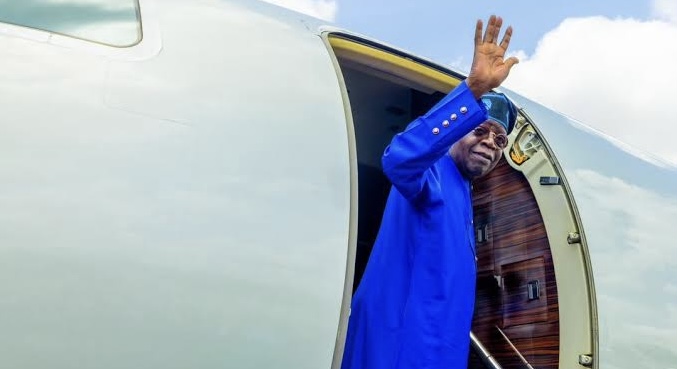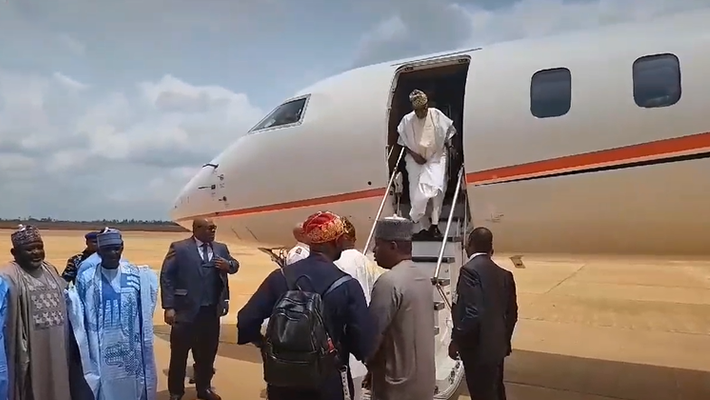Recent malfunctions involving the country’s presidential fleet have puzzled officials, raising fears one of its most iconic features could touch off a disaster of historic proportions.

Chronicles Reporters learned from sources close to the officials familiar with the situation that President Bola Tinubu was transported to an economic summit in Saudi Arabia by a commercial aviation operator this weekend after his main luxury jet underwent rehabilitation and a second aircraft he was traveling with experienced a technical issue in the Netherlands.
The Nigerian leader arrived in The Hague on April 23 for economic and diplomatic engagements at the instance of Prime Minister Mark Rutte. However, shortly before his scheduled departure from the Netherlands on Friday, his plane encountered unspecified problems, including an oxygen leak, according to officials speaking anonymously.
Consequently, the president and his delegation had to leave the Nigerian government aircraft behind and utilize a charter jet company to facilitate their journey to Saudi Arabia for a special session of the World Economic Forum in Riyadh, arriving on Friday night.
Chronicles Reporters was informed that Mr. Tinubu and some of his personal aides departed Rotterdam on a Falcon 8X 9H-GRC private jet for the summit, which is slated for April 28-29. Meanwhile, other members of his delegation, including several ministers and high-ranking administration officials, traveled separately on support aircraft and commercial airlines.
The troubled aircraft, a Gulfstream G550 class, initially designated for Vice-President Kashim Shettima, was used by the president for his foreign trip as his dedicated carrier, the Boeing 737 business jet class operated by the Nigerian Air Force 001, has been undergoing maintenance for several weeks.
The Boeing 737 was taken to a maintenance facility at EuroAirport Basel-Mulhouse-Freiburg on March 25, a region jointly controlled by France, Germany, and Switzerland. As of Saturday night, it had not been returned to Nigeria.
Subsequently, the Gulfstream jet was repaired and dispatched to Saudi Arabia, where it is currently awaiting the president’s return to Nigeria after his official trip on April 29.

The vice-president also relied on chartered planes for his official trips, such as his visit to Iperu-Remo on Sunday, where he traveled in a private plane hired from a Lagos-based consortium.
Requests for comments from the president’s spokesman and the Nigerian Air Force went unanswered.
This recent incident adds to a series of challenges faced by the presidential air fleet, which has required extensive repairs multiple times over the past few years. Critics have questioned the large maintenance expenditure, suggesting that investing in a new plane would be more cost-effective and improve air travel safety for future presidents.